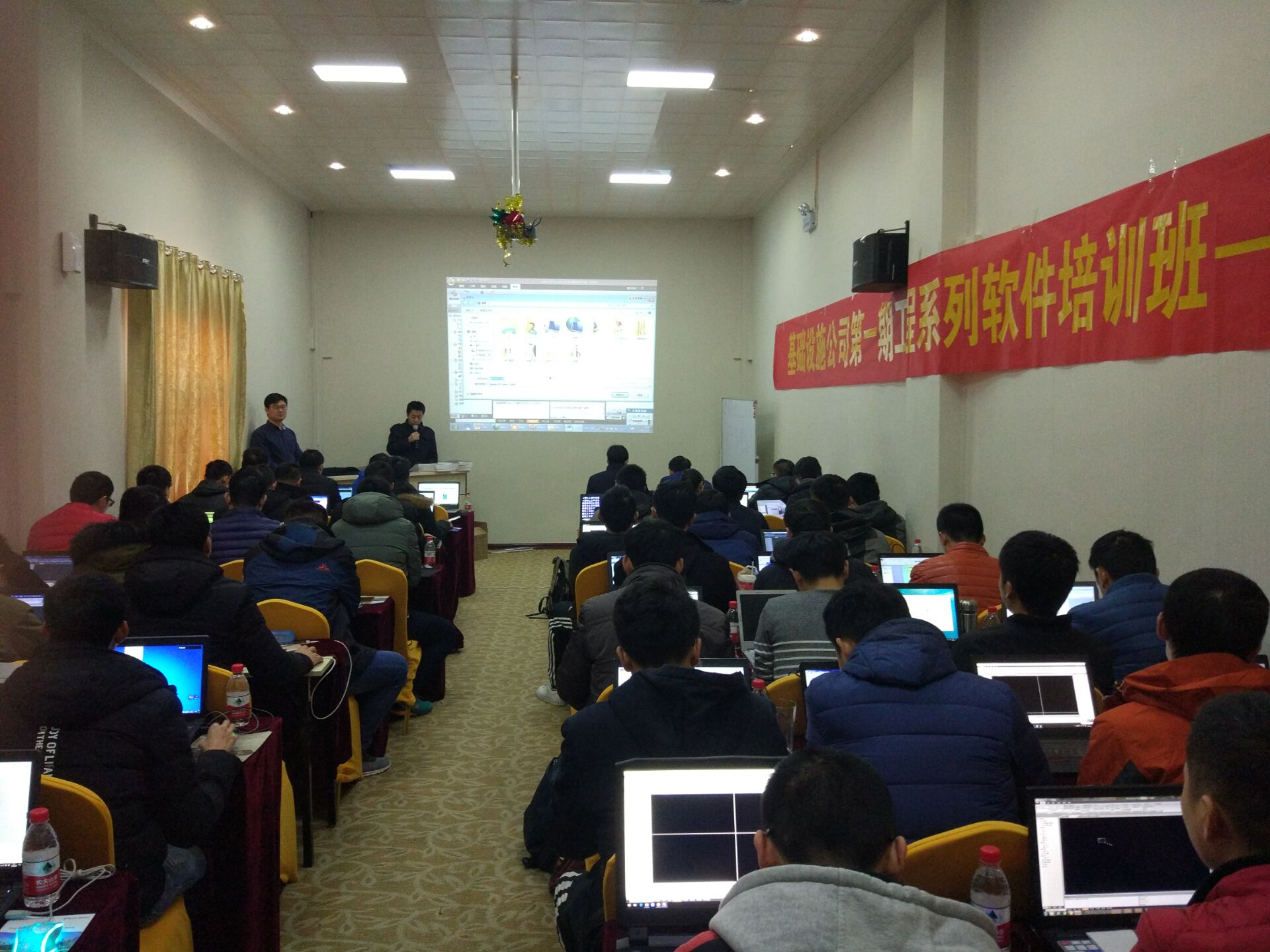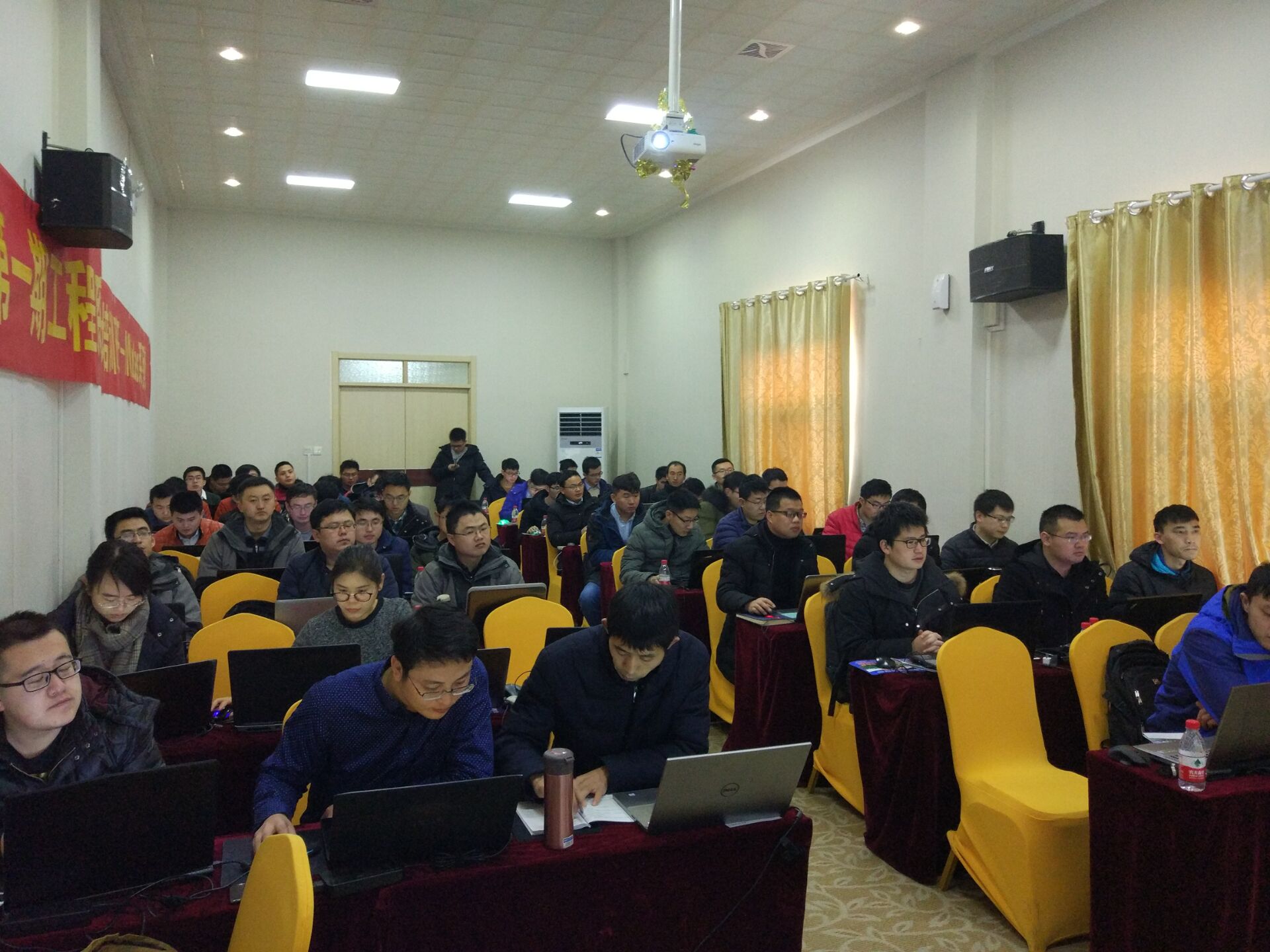As the business sector of the Infrastructure Branch continues to grow, the professional capabilities of technical engineers need to be greatly improved. To improve the professional level of the technical personnel, from February 6 to 9, 2018, the Infrastructure Branch organized Midas GTX NX training class on rock and soil mechanics analysis software. More than 60 persons, including the chief engineers, the deputy chief engineers, the project leaders, the technical engineers, the directors of the engineering technology, and the newly recruited employees in 2017 of the Infrastructure Branch, participated in this class. At the same time, a total of 25 persons from other regional companies also actively participated in the training. This training promoted the communication and progress of employees of various companies.
In this training, experts from the geotechnical department of Beijing Midas Technology Co., Ltd. were invited to give a lecture. The training contents mainly focused on software application training for the cofferdam foundation pit, tunnel, and slope analysis sections. During the training, the lecturer gave a detailed introduction and explanation of the principles of the software and various operating commands, and analyzed the construction characteristics, construction conditions, and technical difficulties of the foundation pits and tunnels in China. The trainees followed to establish the three-dimensional model based on the actual engineering project case, and gradually became familiar with the modeling ideas and the various operating functions of the software. During the each step of operation, the lecturer told the reason to do this step and how to do this step. While guiding all persons to carry out operations, the lecturer also answered various questions that each person encountered.
In order to stimulate all persons’ enthusiasm for learning and improve the quality of training, during the training, the lecturer arranged assignments, inspected the learning situation of the trainees in the form of grouping, and used the last afternoon of the training to carry out job inspection and report and technical operation questions answering, realizing the perfect combination between teaching and actual operations.
This training aimed to improve trainees’ basic modeling capabilities, improve professional skill level, and make them use their own projects as an opportunity to conduct actual construction modeling analysis, analyze the results, and guide on-site construction. At the same time, it played a good role in promoting the professional quality of technical personnel and the company’s scientific and technological progress.

